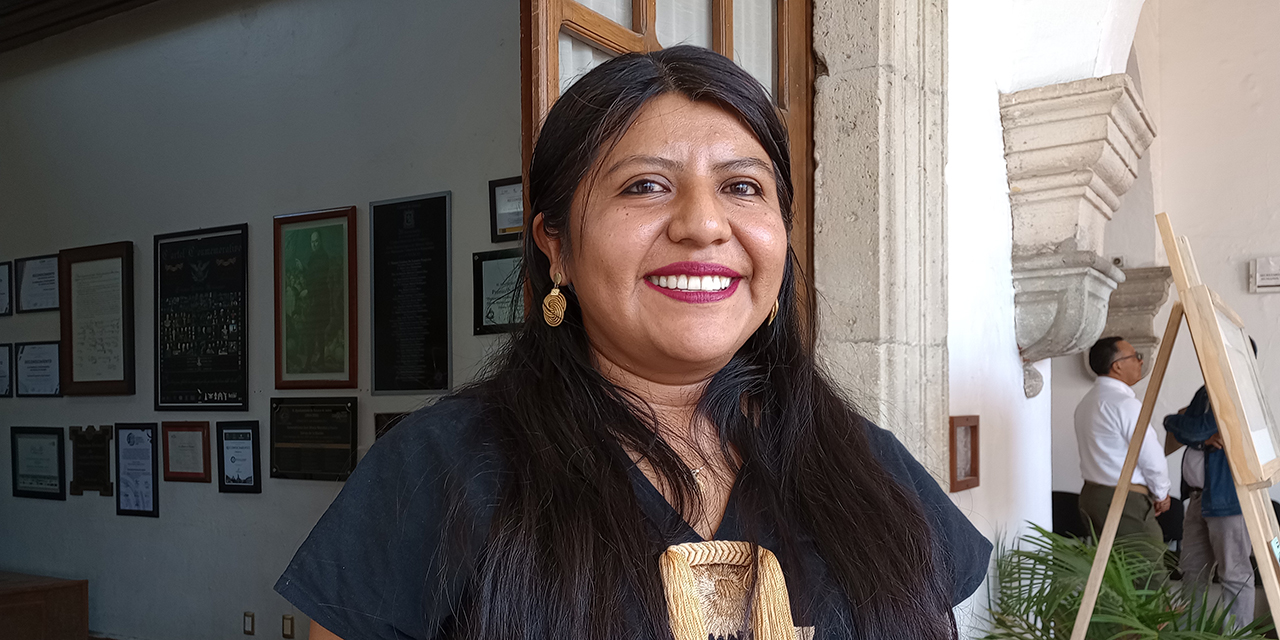Her story was part of a book that seeks to inspire Mexican girls to venture into science, especially those from indigenous communities like her who face more obstacles in accessing school education.
Tania Eulalia is a MEX scientist and activist, who has also received several awards for her work, but she does not stop pointing out the inequalities prevailing in Mexico and in the public policies of a country where women's participation in science is still minimal due to several factors.
Although she notes that unlike in the years when she wanted to study a bachelor's or master's degree, there are now “more opportunities”, the problem of access has not been attacked at its roots.
“I don't like stories of meritocracy because we focus on the fact that all dreams are possible,” said the Tamazolapam del Espírito Santo native who will be honored on International Women's Day with the 2024 Oaxacan Sara Artemisa Brenna Torres Award. Excellence. . Along with nine other women from Oaxaca, Tania will receive the award from the Municipality of Oaxaca de Juárez, this time in honor of the first city councilor.
Tania Eulalia Martínez Cruz has roots in the Sierra Mix region and although in recent years she has lived in Oaxaca City or since her childhood, she had to emigrate to study at the Autonomous University of Chapingo and then in the United States and the Democratic Republic of the Congo. The Netherlands maintains its relationship with Oaxaca. Whether as a researcher or in projects and initiatives of civil society organizations and youth.
Tanya describes herself as an “interdisciplinary scientist” who always emphasizes the importance of science and research, as they have a “role in providing feedback to public policy processes.” However, it also reflects the sciences and knowledge that need to be strengthened, for example, those related to indigenous languages and intercultural education.
Why did a system disavow our languages for so many years? “Why doesn't food policy take into account traditional systems like milpa?” Tanya asks herself while admitting that although “there is a tendency now to embrace that knowledge,” for many years they have abandoned it, “as if indigenous peoples did not have knowledge that was important and could contribute to the world.”
Tania also talks about women's participation in science based on the idea that a very small sector of the Mexican population is involved in this and in research.
“1% of people with doctorates in Mexico…and of that 1%, 3% are indigenous women. Of these 3%, 30% have or studied a master's degree, doctorate or something related to science, engineering, mathematics or technology. “We are a very small sector,” explains the irrigation engineer from the Autonomous University of Chapingo in Mexico, who holds a Master of Science in Agricultural and Biosystems Engineering from the University of Arizona in the United States, and holds a doctorate in social sciences from Wageningen University in the United States. United States.Low.
“If we get back to the point that science and technology have to play a very important role in providing feedback to public policy processes, how can we enrich those processes? Generate more scientists.”
The 2016 National Youth Laureate and the first indigenous researcher in Mexico to receive a Fulbright grant for graduate studies in the United States adds that there are two aspects that must be taken into account in order for more women to venture into such fields.
“One is that you often need financial capital, but other times it's also about social capital. If you don't have examples to guide you to do those things, how are you going to do it? You're going to think that you don't have the right to aspire to those spaces. And yes “We can do it.” “There are so many stories of so many local scientists changing the world, and that is the message I send when I give lectures or work with organizations,” Tanya says.
picture:






